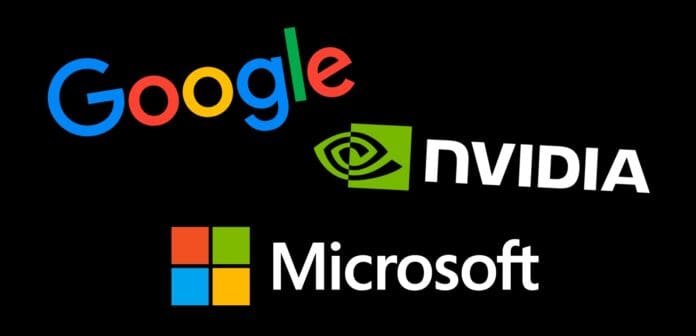Microsoft’s alliance with Inflection’s co-founders is only the most recent example of how well-funded corporations are acquiring artificial intelligence (AI) specialists. Maybe we could refer to it as the Nadella magic. This term accurately describes the newest strategic play made by Satya Nadella, the chief executive officer of Microsoft, although it sounds more like a chess move.
Tech businesses frequently engage in what is commonly referred to as “acquihires,” wherein they acquire a startup in order to acquire a team of highly intelligent people. Hiring the staff and then abandoning the company is Nadella’s unique twist.
Inflection was formerly a leading artificial intelligence (AI) startup in the United States, and last week, Microsoft revealed that it had acquired many of its 70 employees, including two of the three founders.
Microsoft AI, now headed by Mustafa Suleyman and Karén Simonyan, will be in charge of the company’s AI services that are aimed at consumers. This includes the Copilot chatbot, Bing, and Edge browsers.
Following its $13 billion investment in OpenAI along with its most recent collaboration with France’s Mistral, Microsoft has been aggressively recruiting, indicating its intention to form alliances with promising AI startups in order to dominate the market. Additionally, it had shown early support for Inflection.
Microsoft has re-emerged as the most valuable public business in the world, with a market value of $3.1tn. This is more than every company listed on London’s FTSE 100 index combined, thanks to the corporation’s hyperactivity and the plenty of investor excitement surrounding AI. Microsoft has once again left Google in the dust.
This move by Microsoft is just one example of how the world’s largest IT companies are fighting for the top researchers in order to establish their presence in the emerging artificial intelligence market.
Leading research organizations like OpenAI, DeepMind, and Anthropic are building AI foundation models. Even comparatively junior engineers at these businesses may earn seven-figure salaries and get job offers every time they log on to LinkedIn. Engineers at a senior level can earn as much as $10 million.
According to Jordan Jacobs, managing partner of Radical Ventures in Toronto, which has invested in over 50 AI startups worldwide, “There is no question that there is an enormous talent war.” he went onto explain that whoever can construct foundation models and get them to sing is at the very top of their field. Only a select few are capable of doing it, but those that do will command enormous salaries from businesses.

However, this is just one more indicator that the new AI market will likely be controlled by large US IT companies. These companies have the resources (both financial and human) and the ability to train advanced foundation models (like OpenAI’s GPT-4 and Google’s Gemini) in the cloud.
Although Suleyman is a controversial hire, he is important for Microsoft. He was a leading figure in the AI revolution and co-founded DeepMind, Google’s groundbreaking artificial intelligence research firm based in London, which Google acquired in 2014.
He expressed his enthusiasm about the opportunity to join Microsoft and responsibly introduce AI services to over 1 billion consumers. “My vision for how this plays out is that everybody is going to have a trusted, reliable personal AI that makes you smarter and more productive,” he told the Financial Times this week. “In my opinion, working together is going to be really fun.”

Still, Suleyman’s history isn’t without its scars. In 2019, he departed from DeepMind after an independent inquiry involving allegations of bullying and harassment led to his dismissal. By admitting in a taped interview that he “really screwed up” and was “very demanding and pretty relentless,” Suleyman has issued a public apology for his actions.
Not only that, but he is more of an expert in policy and product development than in research. However, Microsoft acquired one of the world’s leading AI researchers in Simonyan, who is also head scientist and co-founder of Inflection. Later in his career, he established an outstanding team of researchers at Inflection after establishing DeepMind’s strong AlphaZero model as a principal scientist. If Simonyan goes to Microsoft, it appears like most of them will follow.
As Inflection AI CEO Mustafa Suleyman put it, “It’s just a ferociously competitive time to be working in tech.” Microsoft VP Kevin Scott gushes over the Inflection team’s newfound talent for developing innovative AI models and tailoring them to specific user scenarios. “You just need a lot of talent,” he remarks.
After last year’s launch of its conversational chatbot Pi, Inflection was considered one of the most promising and well-funded AI startups in the world. Now, its future is uncertain. A number of well-known individuals and corporations invested $1.3 billion in Inflection in June. Among these were Microsoft, Nvidia, Bill Gates, and Reid Hoffman, who is best known as a co-founder of LinkedIn and also serves on Microsoft’s board of directors; he was also the third co-founder of Inflection.
The chatbot developed by Inflection has not been well-received by users, and the company’s remaining employees will now try to sell their technology to large corporations in search of a sustainable revenue stream. According to independent tech analyst Ben Thompson’s renowned newsletter, the startup’s February traffic forecasts were “catastrophic” due to the “relatively sluggish usage numbers” and the high expense of training its algorithms. Inflection was a “failed company,” according to his evaluation.

The decisive factor will not be model superiority, but rather the infrastructure and platform-play that provide consumer access. Inflection claims that a new licensing deal with Microsoft will be good for business and investors alike. According to the corporation, shareholders would also receive a return of more than their initial investment.
Big tech would have bought a startup like Inflection outright in a past era, but with the Biden administration’s antitrust activism, they are hesitant to begin acquisition bids now. Instead, tech giants like Amazon, Google, Nvidia, and Microsoft have been heavy investors in artificial intelligence (AI) startups, frequently exchanging access to their expensive computers and microchips for a share in the company.
Regulators are already looking closely at this emerging web of startups and related businesses. The US Federal Trade Commission began investigating five tech companies involved in this sector in January. The chair of the FTC, Lina Khan, wrote, “Our study will shed light on whether investments and partnerships pursued by dominant companies risk distorting innovation and undermining fair competition.”
Amba Kak, who is now the head of the AI Now Institute and was an advisor to the FTC in the past, finds it encouraging that authorities are looking into the increase of corporate power. Instead of the usual antitrust worries about consumer damage, the emphasis will be on the structure of the market that may inhibit competition.
According to Kak, it will not matter whose model is superior, but rather whose infrastructure and platform-play get access to the consumer. “Inflection and Mistral are the barnacles on the hull of Big Tech.”
Certain venture capital investors might feel disappointed if they cannot sell their investments in startup companies via trade sales, which was their previous exit method. However, there are still plenty of investors eager to put money into small businesses, probing the shadows of the AI market. Smaller AI firms can better meet the specific requirements of their clients’ industries, while larger AI firms concentrate on creating general-purpose foundation models.
According to Jacobs of Radical Ventures, “Writing a poem about your dog in the voice of Donald Trump requires an enormous AI model. But if you are focusing on the enterprise side, then you can train a far smaller model and make them work better for a particular business need,” and he thinks that over the next decade, we will replace all of the software that has ever been written.
There is a lot of rivalry for talented people at this level. Jacobs’ fund employs a specialized in-house team to find the best artificial intelligence (AI) talent to join its portfolio firms. Not only that, but several countries have been courting promising European AI startups with relocation incentives, such as Canada, Singapore, and the UAE.
Not everyone is interested in working for a massive company on the West Coast, even if the five most wealthy tech companies in the US (Amazon, Apple, Google, Meta, and Microsoft) may appear to be the ideal candidates to recruit top personnel. Not even Nadella.
Microsoft VP Kevin Scott gushed that the Inflection team that was leaving to join Microsoft had a natural talent for developing innovative AI models and tailoring them to specific customer needs.

Researchers at Zeki, which keeps tabs on the leading artificial intelligence (AI) minds across 20,000 companies in 90+ countries, have noticed a growing trend of people wanting to work for companies outside of the US. Additionally, they are interested in joining startups or more conventional businesses in the healthcare, banking, or manufacturing industries.
Many artificial intelligence (AI) experts are choosing to work in the United Arab Emirates, Saudi Arabia, South Korea, and a number of Nordic countries rather than in their home countries. A number of national industrial giants have grown to be large employers of AI experts. These include the German company Siemens, the South Korean company Samsung, and the Dutch company ASML.
As the field of AI expands and diversifies, the larger, more gradual plot involves the shifting sands under the big five. In Zeki’s database, there are 10,000 small companies that employ more top AI expertise than the big five put together. “The bigger, slower story is the shifting sands beneath the big five as the AI world deepens and diversifies away from the US,” remarks Tom Hurd, co-founder of Zeki.
Although Suleyman has joined two large tech organizations after co-founding two AI startups, he believes that tiny businesses with the ability to “go superfast, be creative, and invent things that the bigger companies never even thought possible” still have a lot of room to grow.
On both ends of the spectrum, it is hyper-competitive; he remarks that “At the small, startup scale, everybody is on fire in terms of their creativity. And at the big end, everyone’s going head-to-head there, too. I think it’s just a ferociously competitive time to be working in tech.”




